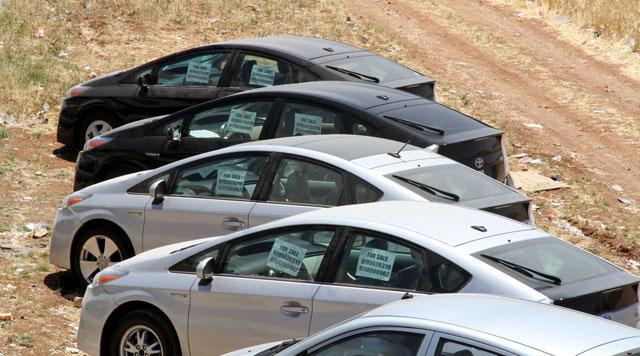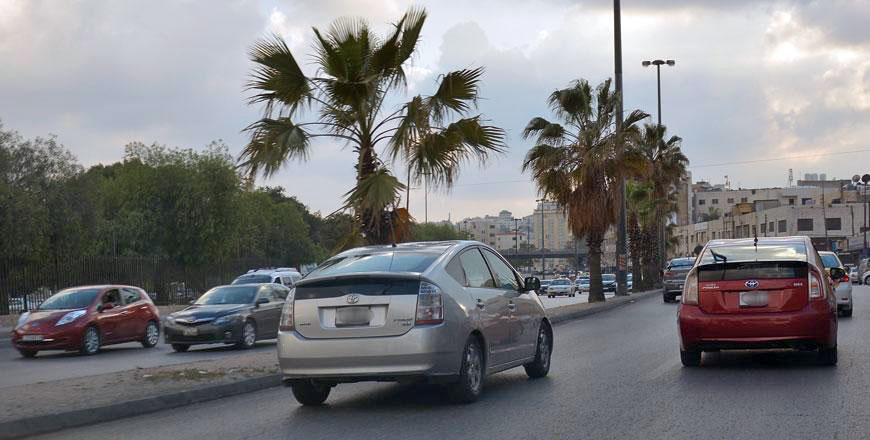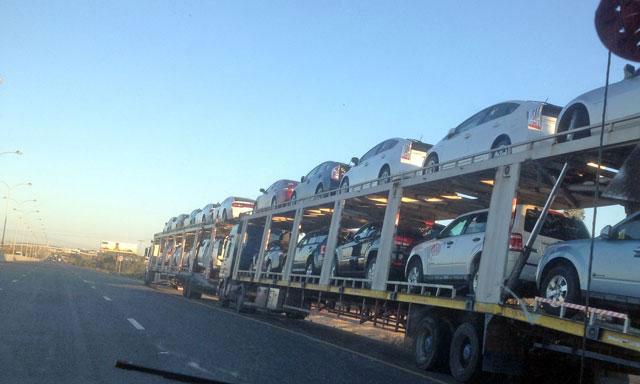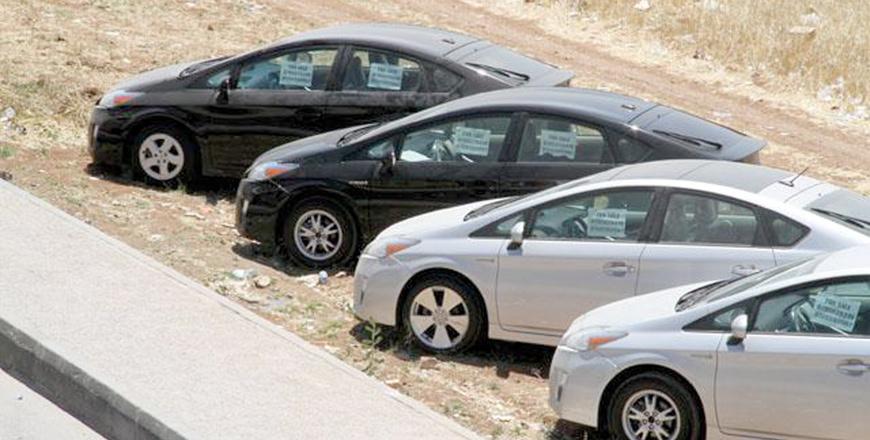You are here
Automobile sector sees red over 45% clearance tax on hybrid cars
By Maram Kayed - Jan 02,2021 - Last updated at Jan 02,2021

Hybrid cars for sale are seen on the side of a street in Amman (File photo)
AMMAN — A government decision to increase the tax on hybrid vehicles to reach 45 per cent came into effect on Friday, much to the displeasure of the automobile sector.
In late 2018, the Cabinet passed a decision to raise the clearance tax on hybrid vehicles to 35 per cent in 2019, 40 per cent in 2020 and 45 per cent in 2021.
When the first hike to 35 per cent went into effect in 2019, the total trade value of hybrid cars in January plummeted by an estimated 85-90 per cent, compared with the same period in 2018, according to Deputy President of the Jordan Free Zones Investors Association (JFZIA) Hisham Quteishat.
The drop, as Quteishat said in past remarks to The Jordan Times, was the “direct result” of the clearance tax.
“The sector will not live to see another year if sales continue to decline so sharply,” added Quteishat.
Mohammad Bustanji, head of JFIZA, told The Jordan Times that, although the tax did reach 40 per cent as scheduled in the first half of 2020, the Cabinet decided to reduce it to 30 per cent in June of 2020 until the end of the past year as a result of the coronavirus crisis.
“If the reduction had been long-term, it would have made a difference, but given that buying a car was no one’s priority in the second half of 2020, the sector did not benefit much from this reduction,” said Bustanji.
“The year may have ended but neither the pandemic nor its effects have vanished. The sector is still struggling, and we urge the government to revisit this dramatic increase and save the sector,” he added.
Owner of a car trading company, Husam Saheb, said that each year witnesses “at least a 50 per cent fall in sales compared with the previous one”.
Saheb said that it is “illogical to put the tax on hybrid cars, which are less environmentally damaging and less costly to citizens than many other car types”.
“In a country like Jordan, where petrol is expensive, the government should be encouraging citizens to buy hybrid cars so that they can save more and improve their quality of living. They should not be imposing taxes on something that is providing a less-expensive solution to citizens,” he added.
Hybrid cars are also “less harmful to the environment”, according to Saheb, who said that Jordan should be “doing everything it can to direct citizens towards hybrid cars in light of a poor public transportation system and high petrol prices”.
Related Articles
AMMAN — The total trade value of hybrid cars in January plummeted an estimated 85-90 per cent, compared with the same period last year, acco
AMMAN — Electric car sales went down by 70 per cent in April as a 25 per cent tax hike on the vehicles went into effect, the Jordanian Free
AMMAN — The volume of clearance of hybrid vehicles dropped by an average of 50 per cent monthly during 2021, compared with the monthly avera














